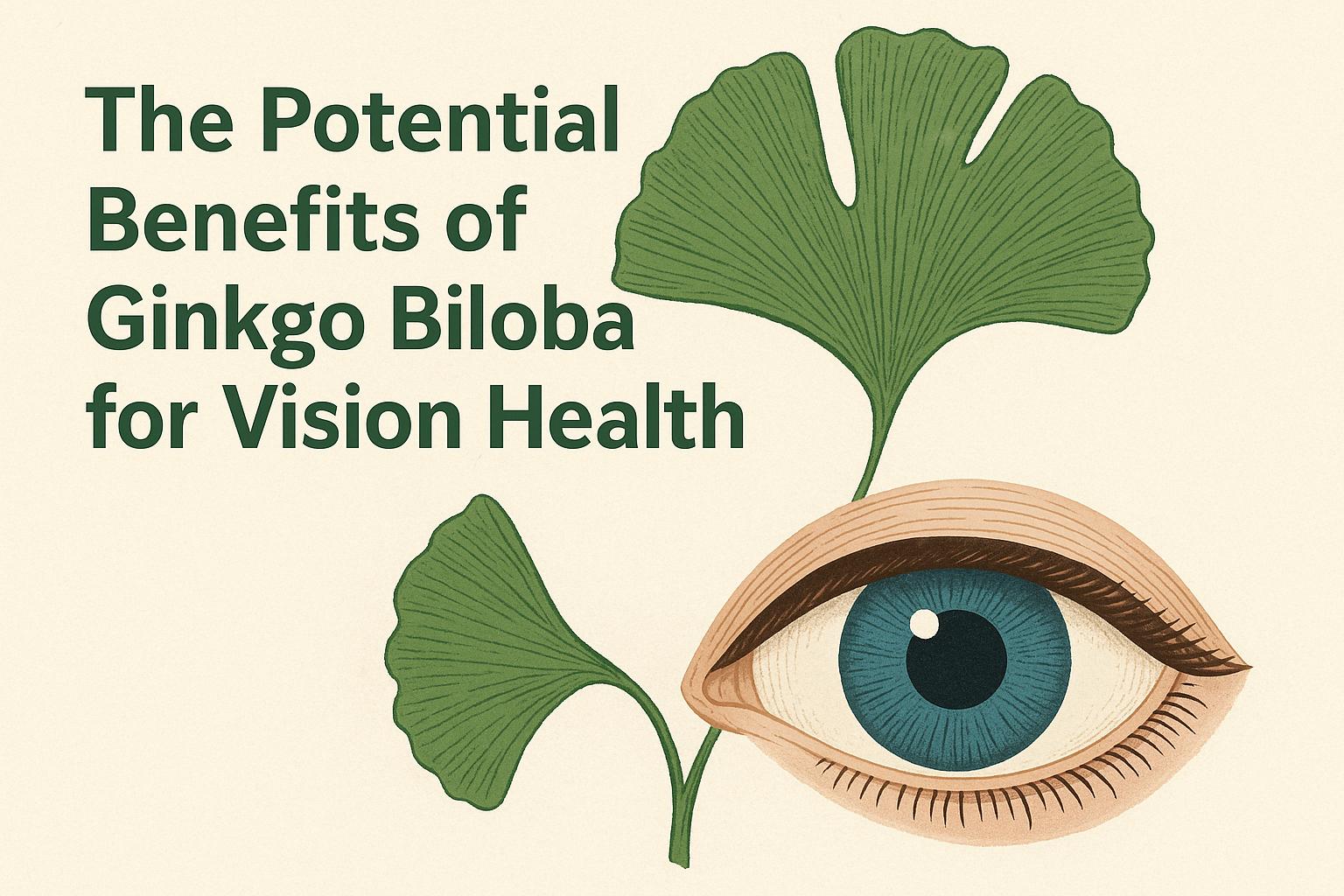The Potential Benefits of Ginkgo biloba for Vision Health
Ginkgo biloba, a species native to China, is one of the oldest trees known to man. It has been a staple in traditional medicine for centuries, believed to address myriad ailments. In recent years, scientific investigations have delved into its potential benefits for vision health, sparking interest among researchers and healthcare professionals alike. This expanded article examines these potential advantages, relying on scientific findings to provide a comprehensive understanding of how Ginkgo biloba may influence vision.
Enhancement of Blood Circulation
A critical way Ginkgo biloba is hypothesized to aid vision health is through enhancing blood circulation, particularly to the ocular regions. This tree’s leaves contain biologically active compounds such as flavonoids and terpenoids. These compounds are renowned for their antioxidant capabilities and vasodilatory effects. Vasodilation refers to the widening of blood vessels, which enhances blood flow and, consequently, the distribution of essential nutrients and oxygen to tissues, including those within the eyes.
Sufficient blood circulation to the eyes is crucial for maintaining healthy vision, as it ensures that all parts of the eye receive the necessary nourishment to function effectively. In particular, conditions such as glaucoma, which involve compromised blood flow, can potentially benefit from improved circulation. Maintaining or improving blood flow can help protect against disease progression and possible vision deterioration.
Reduction of Oxidative Stress
Oxidative stress is a condition characterized by an imbalance between free radicals and antioxidants in the body, leading to cellular damage. This process has been linked to a range of degenerative eye disorders, most notably age-related macular degeneration (AMD) and cataracts. It is within this context that Ginkgo biloba’s potent antioxidant properties appear particularly valuable. The plant’s ability to scavenge free radicals may counteract oxidative damage, thus offering a protective effect on ocular tissues.
Scientific investigations have suggested that the regular consumption of Ginkgo biloba can lead to notable reductions in oxidative stress markers among individuals, especially those with established eye conditions. While these findings are encouraging, they underscore the importance of antioxidants in the maintenance of eye health and how incorporating them can potentially delay or mitigate the progression of degenerative eye diseases.
Potential Impact on Glaucoma
Glaucoma is a chronic eye disease that, if left unchecked, can lead to irreversible vision loss due to damage to the optic nerve, generally from increased intraocular pressure. The condition currently stands as one of the leading causes of blindness worldwide. Emerging research indicates that Ginkgo biloba might offer adjunctive benefits for individuals grappling with glaucoma. The plant’s ability to enhance blood flow could help alleviate some pressure on ocular structures, while its neuroprotective effects might safeguard nerve health.
While Ginkgo biloba is not a substitute for standard medical treatments for glaucoma, its use as a complementary therapy could provide another layer of support for managing the disease. This potential makes it an intriguing area of study, encouraging further exploration into how such ancient remedies can fit into modern therapeutic practices.
Considerations and Recommendations
Despite its potential advantages, incorporating Ginkgo biloba into one’s healthcare regimen requires careful consideration. Before commencing any supplementation, individuals should seek guidance from healthcare professionals, particularly those on concurrent medication, as Ginkgo biloba is known to interact with certain drugs, affecting their efficacy or causing undesired effects.
Moreover, while the existing studies provide a hopeful outlook, they also underscore the necessity for further research. Continued exploration will eventually lead to a deeper understanding of the impacts of Ginkgo biloba on eye health and, ideally, establish guidelines regarding the appropriate contexts and dosages for its use.
For more information on the benefits and studies related to Ginkgo biloba, you can visit the following resources.
In conclusion, Ginkgo biloba represents an intriguing option for supporting vision health, primarily through its positive effects on blood circulation and reduction of oxidative stress. However, like many traditional remedies, its role in modern medicine will benefit from further empirical research to validate its efficacy and safety. This ongoing research will play a crucial role in establishing evidence-based guidelines to optimize its benefits for vision health and beyond. As science progresses, it provides an opportunity to honor traditional knowledge with contemporary scientific insight, potentially paving the way for integrated approaches to health and wellness.

